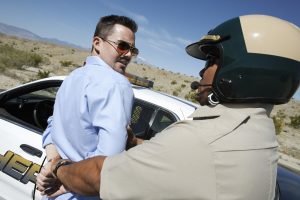 At some point, the exception becomes the rule. To discourage police from violating individual rights, we developed the exclusionary rule. If evidence is obtained as a result of an unreasonable search or seizure, or other Constitutional violation, the evidence is excluded from trial. That’s the general rule. Courts, however, have created exceptions to this rule. One exception to the exclusionary rule was the subject of a recent case before the United States Supreme Court. The outcome of that case could affect DUI/OVI cases in Ohio.
At some point, the exception becomes the rule. To discourage police from violating individual rights, we developed the exclusionary rule. If evidence is obtained as a result of an unreasonable search or seizure, or other Constitutional violation, the evidence is excluded from trial. That’s the general rule. Courts, however, have created exceptions to this rule. One exception to the exclusionary rule was the subject of a recent case before the United States Supreme Court. The outcome of that case could affect DUI/OVI cases in Ohio.
Articles Tagged with Fourth Amendment
U.S. Supreme Court Decides Constitutionality Of Warrantless Blood Tests And Breath Tests In DUI Cases
 Last week, the United States Supreme Court released a decision in a trio of cases involving DUI refusal laws. A previous article in this blog gives a preview of the cases. To decide the outcomes of those cases, the court analyzes whether search warrants are required before law enforcement officers can administer breath tests and blood tests. Based on that analysis, the Court decides whether states can make it illegal to refuse chemical tests in DUI cases. The Court’s decision will impact Ohio DUI/OVI cases.
Last week, the United States Supreme Court released a decision in a trio of cases involving DUI refusal laws. A previous article in this blog gives a preview of the cases. To decide the outcomes of those cases, the court analyzes whether search warrants are required before law enforcement officers can administer breath tests and blood tests. Based on that analysis, the Court decides whether states can make it illegal to refuse chemical tests in DUI cases. The Court’s decision will impact Ohio DUI/OVI cases.
Ohio DUI/OVI Refusal Law May Be Affected By Cases In U.S. Supreme Court
 Suppose a police officer comes to your home tonight without a warrant and wants you to consent to a search of your residence. If you are like most people, you would say ‘no’: you would assert your Fourth Amendment right to be free from unreasonable searches and seizures. Now suppose the government makes it a crime for you to refuse to consent to the search. That’s what Ohio and several other states have done with DUI laws which criminalize refusing a breath/blood/urine test. Those laws are the subject of cases currently before the United States Supreme Court.
Suppose a police officer comes to your home tonight without a warrant and wants you to consent to a search of your residence. If you are like most people, you would say ‘no’: you would assert your Fourth Amendment right to be free from unreasonable searches and seizures. Now suppose the government makes it a crime for you to refuse to consent to the search. That’s what Ohio and several other states have done with DUI laws which criminalize refusing a breath/blood/urine test. Those laws are the subject of cases currently before the United States Supreme Court.
Supreme Court Addresses Use Of Drug Dogs At Traffic Stops
If a police officer stops you for a minor traffic violation, how long should the officer be permitted to detain you? Suppose the officer issues you a ticket or a warning for the minor traffic violation and then says he wants you to wait while he has a drug dog sniff your car? What do you say? If you say no, can the officer do it anyway?
Recent Erosion Of Fourth Amendment Rights May Impact Ohio DUI/OVI Cases
Suppos e an officer detains a person for violating a traffic law and it turns out the person really didn’t violate the law: the officer was simply mistaken about what the law says. Until recently, one would expect that any evidence obtained after the mistaken detention would be thrown out. In a recent case, however, the U.S. Supreme Court concluded any evidence obtained after the officer mistakenly detained the person is not excluded from trial, so long as the officer’s mistaken belief about the law was reasonable.
e an officer detains a person for violating a traffic law and it turns out the person really didn’t violate the law: the officer was simply mistaken about what the law says. Until recently, one would expect that any evidence obtained after the mistaken detention would be thrown out. In a recent case, however, the U.S. Supreme Court concluded any evidence obtained after the officer mistakenly detained the person is not excluded from trial, so long as the officer’s mistaken belief about the law was reasonable.
 Columbus OVI/DUI Attorney Blog
Columbus OVI/DUI Attorney Blog


